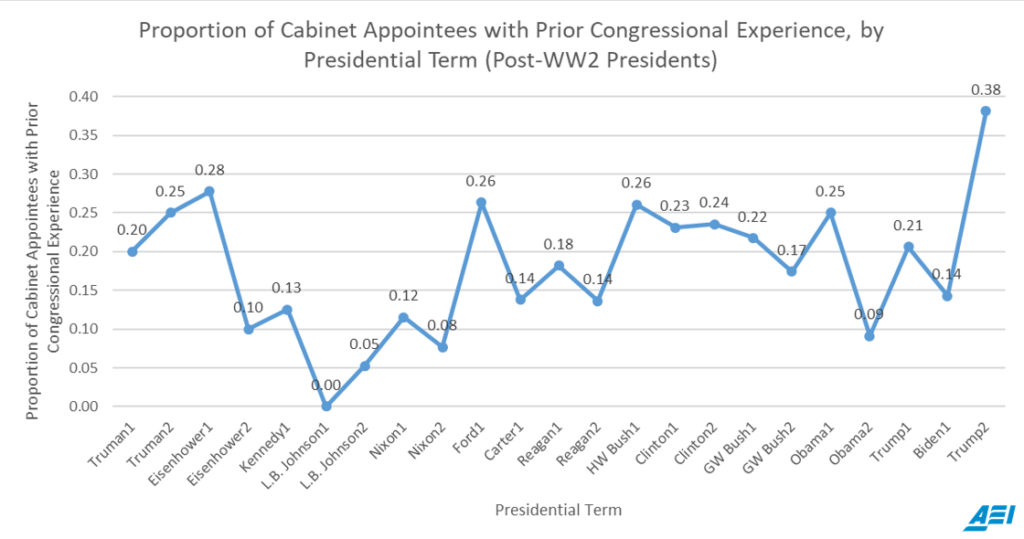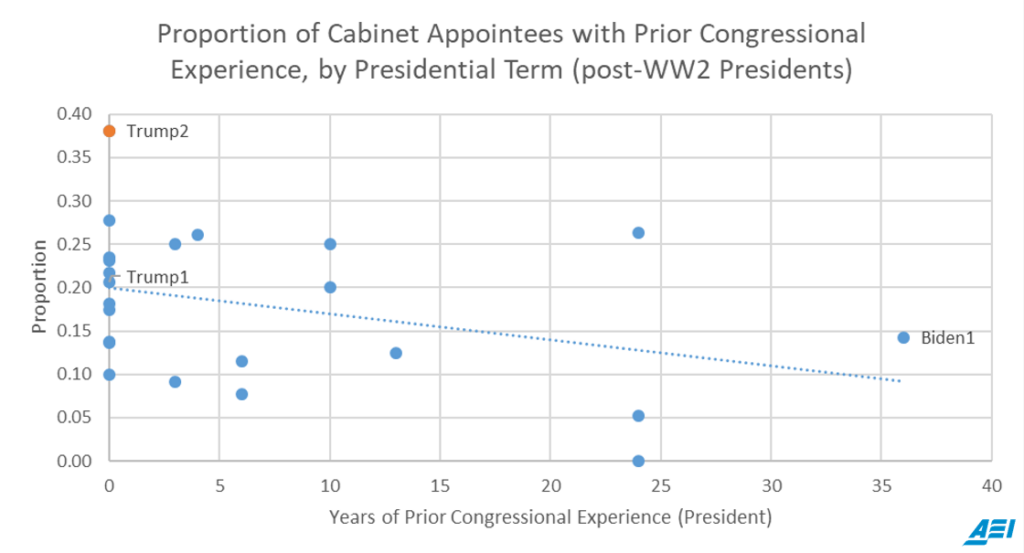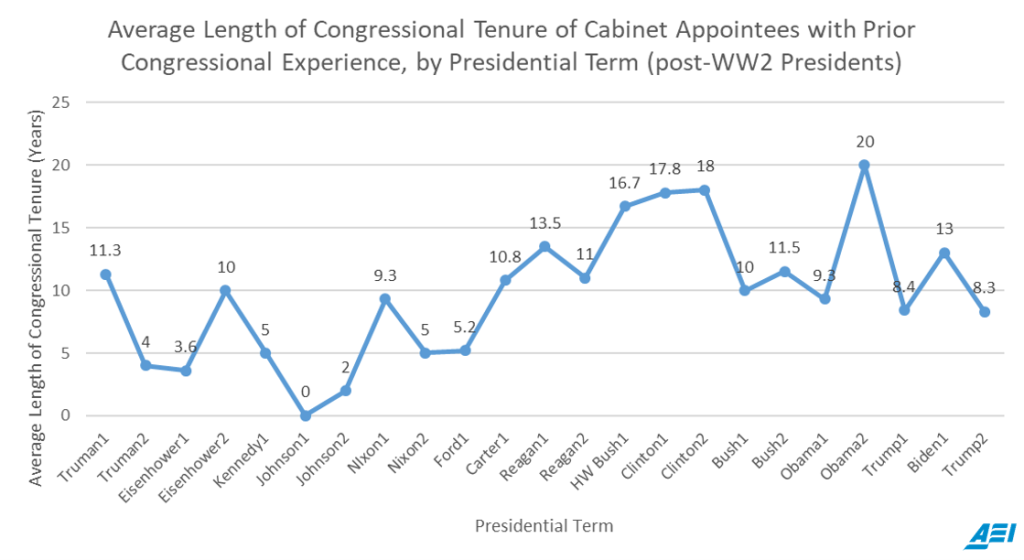By Philip Wallach and Jaehun Lee

When he was first elected president in November 2016, Donald Trump chose a diverse array of businessmen, generals, and Republican stalwarts to fill his cabinet. With a few of his picks, including Mick Mulvaney as director of the Office of Management and Budget and Tom Price as Secretary of Health and Human Services, Trump also built bridges to congressional Republicans—a shrewd move for a political outsider.
But now that he has been reelected in 2024, Trump’s picks for his second term cabinet have drawn even more heavily from veterans of Congress. Indeed, by our calculations, Trump 47 is leaning harder on Capitol Hill than any other post-WWII administration.

Most of Trump’s choices point in another direction, though. Far from being known as effective legislative operators, several of his nominees were known as fiery critics of their colleagues. Matt Gaetz and Tulsi Gabbard stand out as having more enemies than friends in Congress.
These nominees better fit a different model for understanding nominees with congressional background: coalition maintenance. From this point of view, fitting into the party in a particular way matters as much as long legislative experience, and indeed Trump’s picks are below the average number of years of service.

Members of Congress often establish themselves as the spokespeople for important factions within the party, and so gathering them together can be an effective way of bringing the party’s full coalition into dialogue. Gaetz and Gabbard (along with FBI director Kash Patel, who was an important congressional staffer) used their congressional platforms to launch themselves as anti-establishment populists. Other Trump picks represent different factions. Lori Chavez-DeRemer, in just two years serving in the House, made herself one of the GOP’s clearest pro-labor voices; that faction gets its seat at the table with her nomination as Secretary of Labor. Sean Duffy, apart from giving Gen X fans of The Real World a warm glow, can be thought of as a voice for various American industries he has lobbied for in his post-congressional career. Rubio and Rep. Michael Waltz bring the defense hawk perspective to the table.
Being a GOP member of the 116th House also proved to be a uniquely favorable position for getting in Trump’s good graces because it provided so many chances to rebut attacks directed against Trump, most especially the first impeachment. Eight GOP House members served as Trump’s congressional defense team during the ensuing Senate trial: Collins, future Speaker of the House Mike Johnson, Jim Jordan, Debbie Lesko, future White House Chief of Staff Mark Meadows, John Ratcliffe, Stefanik, and Lee Zeldin. As four of these members take up their administration positions, perhaps they can send now-Senator Adam Schiff a thank you note for making their former workplace such a lively and challenging environment in which to prove their talents.
Whatever the reasons for their elevation, most of these veterans of Capitol Hill will soon be confirmed and find themselves looking at their old stomping grounds from a new perspective. We will see how well these newly made executives will collaborate with their former colleagues.
Methodological Note
Our main count includes the heads of the 15 executive departments (State, Treasury, Defense, Justice, Interior, Agriculture, Commerce, Labor, HHS, HUD, Transportation, Energy, Education, Veterans Affairs, Homeland Security) and five additional positions that have been considered Cabinet-level for a significant period of time (UN Ambassador, OMB Director, White House Chief of Staff, US Trade Representative, and EPA Administrator).
In this category, eight of Trump’s 21 picks have congressional experience: Lori Chavez-DeRemer (2), Doug Collins (8), Sean Duffy (8), Matt Gaetz (8), Kristi Noem (8), Marco Rubio (14), Elise Stefanik (10), Lee Zeldin (8).
Five other Trump picks also have congressional experience: Tulsi Gabbard (8); Kelly Loeffler (1); Billy Long (12); John Ratcliffe (5); and Michael Waltz (6).
Full dataset, which goes back to the 18th century, available upon request.
Philip Wallach is a senior fellow at the American Enterprise Institute. Jaehun Lee is a research assistant at the American Enterprise Institute.
Stay in the know about our news and events.